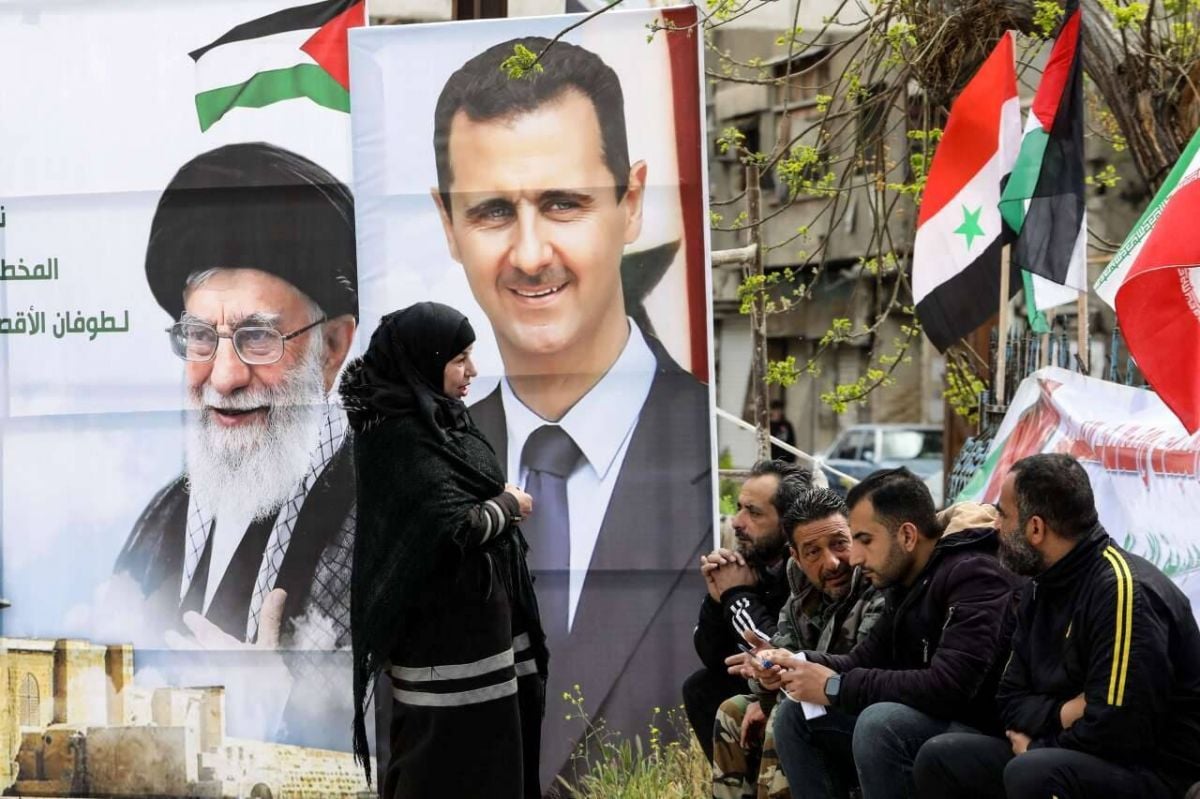
According to London-based Al-Quds, an article by Haaretz analyst Zvi Barel has drawn attention to a nuanced, if controversial, claim: that Bashar al-Assad’s regime in Syria, Iran, and Israel operate as “silent partners” in addressing Israeli regional goals, particularly concerning Hezbollah. The claim highlights contradictions in Assad’s rhetoric and actions, suggesting a pragmatic prioritization of power preservation over substantive alignment with the Palestinian cause.
Historically, the Assad regime has adopted strident anti-Israel and pro-Palestinian rhetoric. Yet, actions on the ground reveal a cautious approach, avoiding direct confrontations that might jeopardize its grip on power. This pattern, evident throughout the rule of both Hafez and Bashar al-Assad, has entrenched the notion that maintaining the regime’s survival supersedes any ideological commitments to Palestine or broader regional causes.
In recent years, this balancing act has grown more complex. Syria’s dependence on Iran for financial and military support has forced Assad to tolerate Tehran’s presence while simultaneously resisting overt Iranian efforts to use Syria as a launchpad for attacks against Israel. This duality positions Assad in what Barel describes as a role akin to a “silent partner” in efforts to curtail Hezbollah’s military operations.
According to Barel, removing Iran from Syria is unlikely, given Assad’s economic reliance on Tehran. Despite this, the Assad regime has reportedly taken steps to limit Hezbollah’s activities, particularly in the transfer of arms. Israel, for its part, has expanded its military operations across Syria, targeting suspected weapons shipments and infrastructure linked to Hezbollah. While Russia, another key player in Syria, has declined Israel’s requests to curtail such activities, Assad appears to have acquiesced to Israeli priorities, albeit indirectly.
Barel notes that Assad’s “neutrality” during recent conflicts in Gaza, his suppression of pro-Hamas demonstrations in Palestinian refugee camps in Syria, and his rejection of relocating Hamas leadership from Qatar to Syria demonstrate a deliberate distancing from Iran’s anti-Israel strategy. These actions reflect a calculated effort to avoid entanglement in broader regional conflicts that could provoke Israeli retaliation or disrupt the regime’s fragile recovery.
The alleged tacit understanding between Israel and Assad, facilitated by shared interests in containing Hezbollah, suggests a pragmatic reshaping of alliances. Assad’s return to the Arab League and tentative overtures from EU nations seeking to address the Syrian refugee crisis add another layer of complexity. For Assad, aligning with Israel’s security interests – even covertly – may offer a pathway to rehabilitating his international standing.
For Israel, engaging Assad as a “quiet partner” could provide a mechanism to enforce agreements limiting Hezbollah’s operations in southern Lebanon, potentially reducing the threat of escalation. However, the extent of Assad’s willingness or ability to enforce such measures remains uncertain, given the entrenched presence of Iranian forces in Syria.
The Haaretz article highlights the central theme of the Assad regime’s survival strategy: pragmatism over principle. While espousing unwavering support for Palestine, Assad’s actions reveal a prioritization of regime preservation, even at the cost of ideological inconsistencies. As regional dynamics evolve, the alleged “silent partnership” may serve as a lens to understand the interplay of power, survival, and geopolitics in the Levant today.








